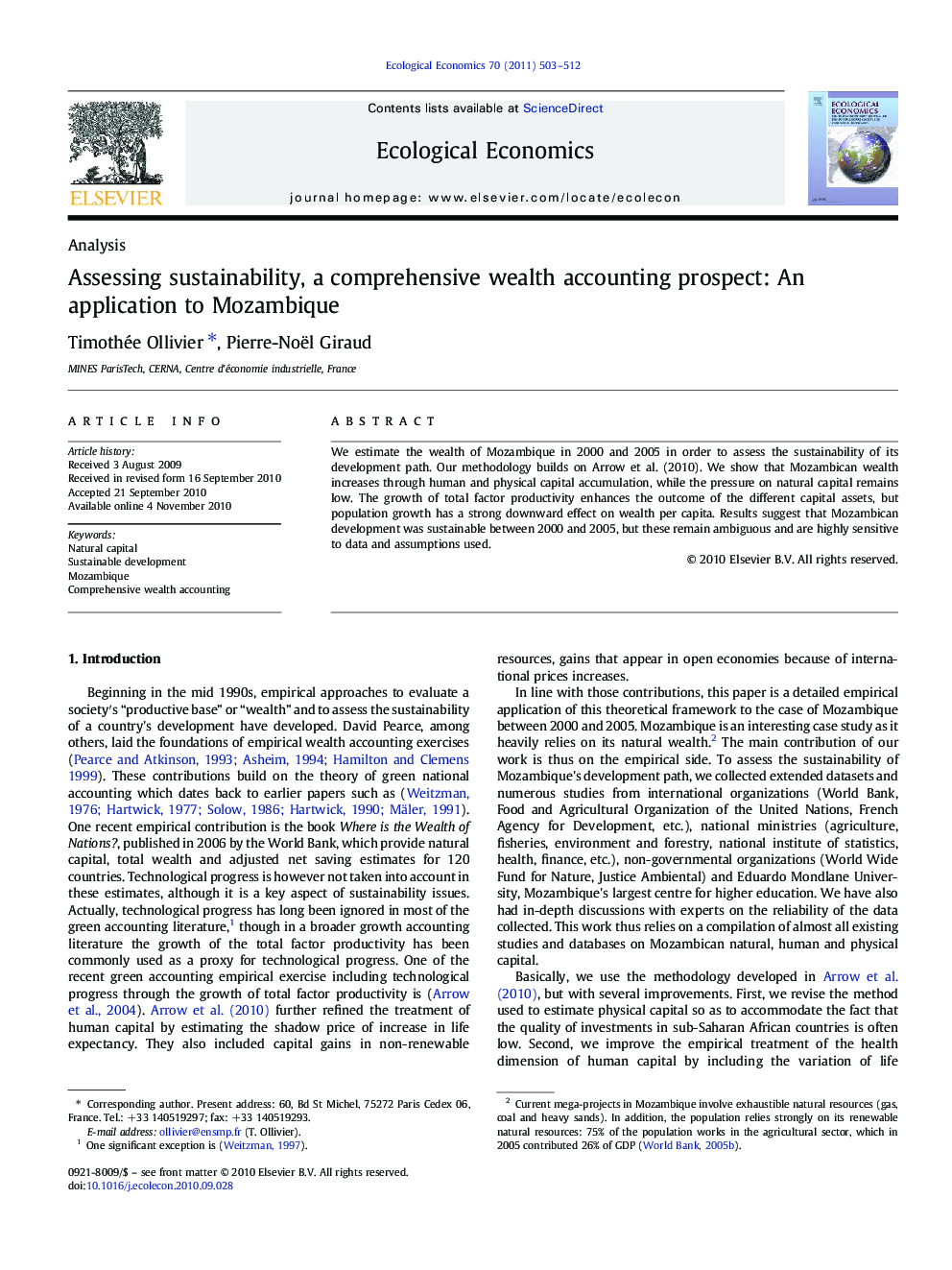| Article ID | Journal | Published Year | Pages | File Type |
|---|---|---|---|---|
| 5050851 | Ecological Economics | 2011 | 10 Pages |
Abstract
We estimate the wealth of Mozambique in 2000 and 2005 in order to assess the sustainability of its development path. Our methodology builds on Arrow et al. (2010). We show that Mozambican wealth increases through human and physical capital accumulation, while the pressure on natural capital remains low. The growth of total factor productivity enhances the outcome of the different capital assets, but population growth has a strong downward effect on wealth per capita. Results suggest that Mozambican development was sustainable between 2000 and 2005, but these remain ambiguous and are highly sensitive to data and assumptions used.
Related Topics
Life Sciences
Agricultural and Biological Sciences
Ecology, Evolution, Behavior and Systematics
Authors
Timothée Ollivier, Pierre-Noël Giraud,
